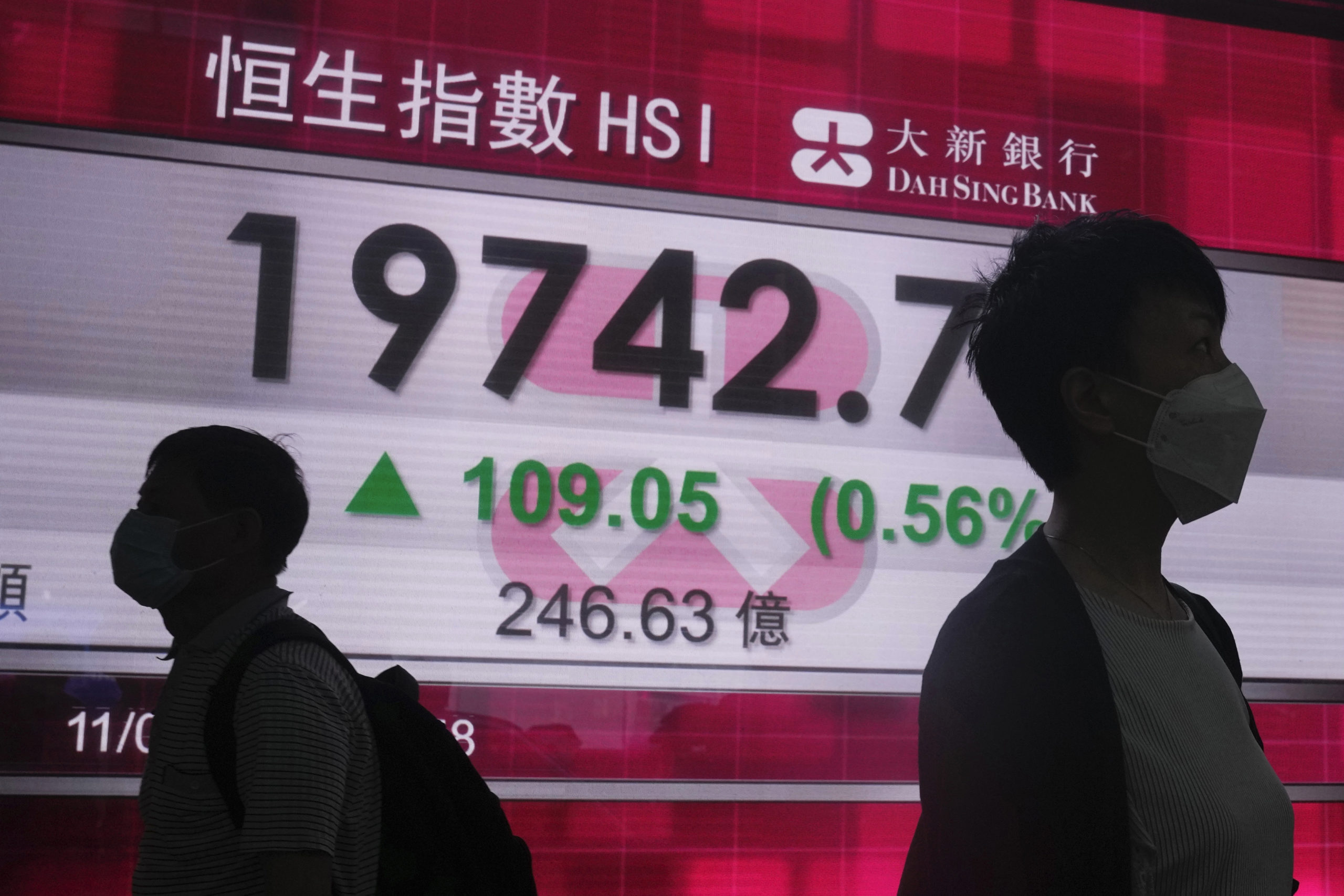 1
1 1
1
Shares fell in Asia on Thursday after the release of worse inflation data than expected sparked heavy selling of technology stocks on Wall Street.
Hong Kong’s benchmark dipped 1.5% in early trading following the arrests of several prominent democracy advocates, including a retired Roman Catholic cardinal.
Wednesday’s report from the U.S. Labor Department showed inflation slowed a touch in April, down to 8.3% from 8.5% in March. Investors also found some glass-half-full signals in the data suggesting inflation may be peaking and set to ease further, but the numbers were still higher than economists forecast.
They also showed a bigger increase than expected in prices outside food and gasoline, something economists call “core inflation,” which can be an indicator of future trends.
Markets are focused on inflation and where it’s heading because it’s causing the central banks to wind down support for economies that was rolled out during the pandemic. The U.S. Federal Reserve, for example, has flipped aggressively toward raising interest rates after seeing high inflation last longer than it expected.
By midday, Hong Kong’s Hang Seng was 1.1% lower at 19,613.34. Tokyo’s Nikkei 225 gave up 0.8% to 26,905.91.
The Shanghai Composite index edged 0.2% lower to 3,051.77. Australia’s S&P/ASX 200 lost 0.9% to 7,002.50. South Korea’s Kospi slipped 0.3% to 2,584.97.
On Wednesday, an early rally faded, leaving the S&P 500 1.6% lower at 3,935.18. That wiped out gains from a day before, when the benchmark index snapped a three-day losing streak.
The Dow Jones Industrial Average dropped 1% to 31,834.11. The Nasdaq fell 3.2% to 11,364.24 as tech stocks weighed down the broader market. The three major indexes are each on pace for another sharp weekly loss.
Smaller company stocks also lost ground. The Russell 2000 fell 2.5% to 1,718.14.
Economists said the inflation report will keep the Fed on track for rapid and potentially sharp increases in interest rates in upcoming months, though the data led to erratic trading on Wall Street.
Treasury yields initially jumped but pared their gains as the morning progressed. The 10-year Treasury yield climbed as high as 3.08% overnight but fell back to 2.90% early Thursday.
To corral high inflation, the Fed has already pulled its key short-term interest rate off its record low near zero, where it spent most of the pandemic. It also said it may continue to hike rates by double the usual amount at upcoming meetings.
Such moves are designed to slow the economy to help quash inflation, but the Fed risks causing a recession if it raises rates too high or too quickly. Higher rates tend to pull prices for stocks and all kinds of investments lower in the meantime. Higher-yielding, safe Treasury bonds, for example, become more attractive to investors.
Conversely, higher rates detract from the appeal of shares that dominated during the ultra-low rates of the pandemic. That includes big technology companies, other high-growth stocks and even cryptocurrencies. The Nasdaq’s loss of more than 27% so far this year is considerably worse than the roughly 17% drop for the S&P 500, for example.
Coinbase, a crypto trading platform, tumbled 26.4% after it reported much weaker results for the latest quarter than analysts expected. Drops in crypto prices dragged on trading volumes through the quarter.
Apart from interest rates, in China, shutdowns meant to stem COVID are raising the risk of more supply chain disruptions for global companies and a slowdown in the world’s second-largest economy.
The war in Ukraine, meanwhile, is threatening to keep inflation high because of disruptions to the oil and natural gas markets.
Benchmark U.S. oil dropped $1.29 to $104.42 per barrel in electronic trading on the New York Mercantile Exchange. It gained 6% on Wednesday.
Brent crude, the international pricing standard, shed $1.31 to $106.20 per barrel. It added 4.9% the day before.
In currency trading, the dollar slipped to 129.73 Japanese yen from 129.95 yen. The euro fell to $1.0515 from $1.0517.